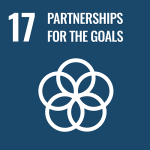
Research Impact Enforcing labour standards: Addressing the exploitation of labour in the cleaning industry
The cleaning industry has long held a reputation for exploitation of its workers – providing pay and conditions below legal entitlements. This research explores the improvement of working standards in the cleaning industry; working with industry to implement a pricing tool for better transparency in contracting.
The Challenge
You wouldn’t expect to find modern slavery in Australia; however, the cleaning industry - which employs over 120,000 people - is one of the most vulnerable and exploited sectors in the labour market. This is due to the highly competitive nature of cleaning contracts, resulting in profit margins so thin that there’s little room to meet workers legal entitlement to pay and conditions.
With the aim of ending exploitation in property services and improving work standards, the Cleaning Accountability Framework (CAF) was established in 2013. This body brings together stakeholders (including business, union representation and the Fair Work Ombudsman) to provide a framework for best practice. In 2018, under an Australian Research Council Linkage grant, CAF joined forces with UTS to bring a multi-disciplinary approach to review the now widening scheme. A key aspect of this project was the work of UTS Business School Accounting Professor - David Bedford - to redevelop the CAF pricing tool.
Solution
Initially, research was undertaken by the UTS team to explore the best approach to implement better standards. This research identified that the top of the supply chain was the best place to start – with building owners either intrinsically wanting to do the right thing, or sensitive to the reputational risk of doing the wrong thing. Based on these findings, Professor Bedford redeveloped CAF’s pricing mechanism; increasing transparency for contracting parties to better understand the financial requirements for a contract to be sustainable. The tool was redesigned to provide benchmarks for the cost of cleaning various buildings based on the presence of different facilities – outlining the minimum wage and entitlement cleaners deserve.
Outcome and impact
The updated tool now flags for building owners whether a cheap contract may in fact be too cheap – signalling potential worker exploitation. In 2020 the pricing tool was implemented by CAF as a condition for certification, which has seen the tool successfully implemented by major property management firms and cleaning contractors in the retail and commercial sectors.
The implementation of this pricing tool presents a wide range of benefits across the cleaning industry. Cleaners are now presented with more secure working conditions; contractors find themselves with a more stable market; and government regulators and unions have a way to measure compliance. The approach undertaken in this project highlights the potential for accounting practices to play a more active role in shaping how markets address modern slavery risks – with the tool applicable in other sectors (such as security, aged care and horticulture).

I think that the general perception of most people would be that modern slavery and labour exploitation is something that happens overseas in emerging countries, but there's actually a significant amount of labour exploitation that happens right here. Historically the Australian cleaning industry has been subject to one of the highest rates of labour exploitation in Australia. These things include underpayment of wages; being subject to unsafe and dangerous working conditions; as well as a lack of entitlements (such as withholding superannuation payments).
I've been looking at different ways in which accounting can be used to attempt to address labour exploitation. My research has looked at contracting practices – I partnered with a firm called the Cleaning Accountability Framework, or CAF, which is a multi-stakeholder organisation that is attempting to lift worker standards in the Australian cleaning industry. A change in contracting practices can increase the level of transparency around risk with labour exploitation.
Specifically, we developed a pricing mechanism that enables contracting parties those between building managers and contracting firms to better understand what the financial requirements are of that contract in order for it to be sustainable to be able to pay workers the regulatory minimum wages and entitlements that they deserve.
I think that the biggest impact that this research has had is to actually see this tool being implemented in practice. It's now becoming an industry standard when contracting in buildings and shopping centres for cleaning contracts, and I continue to work with CAF to build other pricing mechanisms that are tailored to unique industry circumstances.
Research outputs
Journal articles
Boersma, B and Bedford, D. (2023). The role of market devices in addressing labour exploitation: An analysis of the Australian cleaning industry. The British Accounting Review. Volume 55, Issue 3. https://doi.org/10.1016/j.bar.2022.101129
Meet the research team
Collaborate with us
Find out about research collaboration with the UTS Business School.
Research impacts
United Nations Sustainable Development Goals (UN SDGs)

Promote sustained, inclusive and sustainable economic growth, full and productive employment and decent work for all

Reduce inequality within and among countries

Strengthen the means of implementation and revitalise the Global Partnership for Sustainable Development

